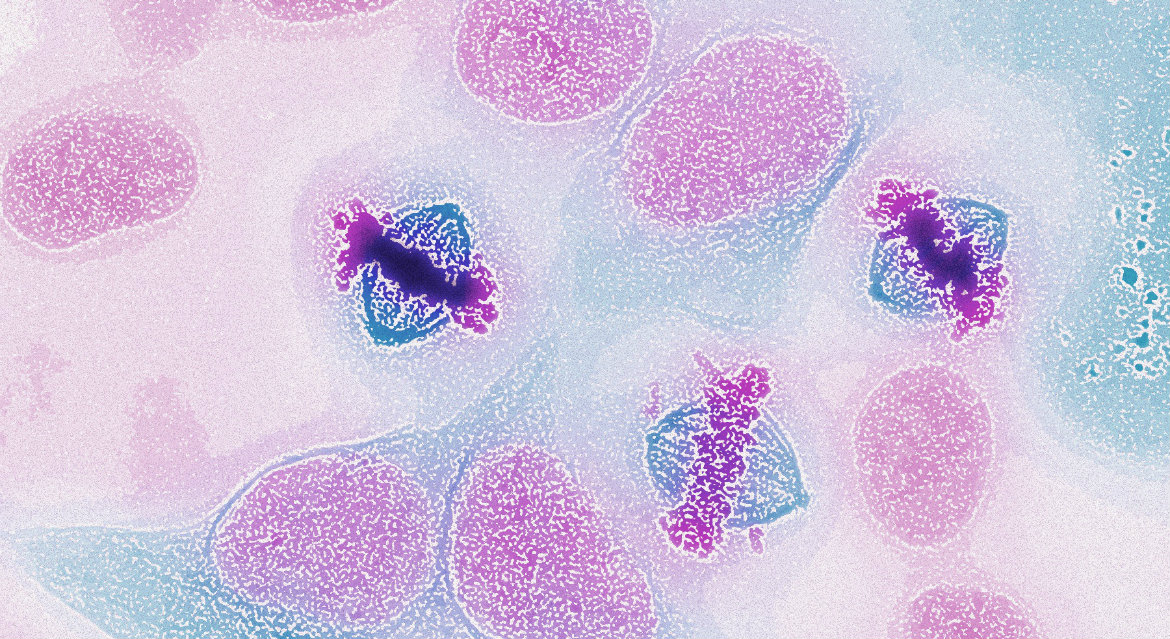Researchers make important cell division discovery
Published On Wed 13 Mar 2019 by Grant Hill

Researchers at the University of Dundee have provided important new insights into the regulation of cell division, which may ultimately lead to a better understanding of cancer progression.
Cell division, also known as mitosis, is the process by which a parent cell divides into two daughter cells containing the same DNA content. If this process goes wrong and the DNA is not partitioned equally then diseases such as cancer can arise.
To safeguard against these errors, the cell uses two classes of enzymes, known as kinases and phosphatases, to monitor division and switch signals on and off at certain times. Although scientists know much about the kinases that turn signals on, much less is known about the phosphatases that switch them off.
A team, led by Dr Adrian Saurin at the University’s School of Medicine, looked at PP2A-B56, a major phosphatase family that play key roles during mitosis. What they discovered is that this enzyme is much more complex than previously thought.
“Two fascinating facts attracted us to this project,” said Dr Saurin. “Firstly, one enzyme family, which is still poorly understood, was crucial to safeguard three major processes during mitosis. Secondly, this family contains at least five different members and yet these were all previously thought to work in the same way.
“This begged the obvious question of why we have evolved to have five when apparently one can do the job just fine. In fact, we went on to show that, in this case, one is not enough.
“Although these enzymes are all very similar, we identified very small differences between B56 proteins that allow them to bind to unique areas of the cell, and crucially, to control separate processes during cell division.
“This is important because it starts to tell us why this large phosphatase family exists, and importantly, it also provides clues as to how the individual members could be inhibited specifically. This may eventually allow the development of selective PP2A-B56 inhibitors which could potentially be used to treat different diseases, including cancer.”
“Although development as a therapy remains a long way off, I am optimistic that phosphatase inhibitors could eventually be used in this way. We are only just beginning to understand how phosphatases achieve specificity and that knowledge is going to be crucial if we are going to develop drugs that can block those specific functions and treat disease.”
The research is published in the journal eLife.
For media enquiries contact:
Grant Hill
Press Officer
University of Dundee
Nethergate, Dundee, DD1 4HN
Tel: +44 (0)1382 384768
Mobile: 07854 953277
Email: g.hill@dundee.ac.uk